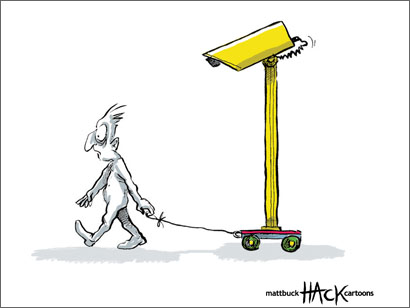
Image by Tormel on Flickr. Some rights reserved
Here are 10 things every journalists should know in 2012. This list builds on 10 things every journalist should know in 2009 and 2010. It is worth looking back at the previous posts as the ideas are still relevant today.
1. Learn from Leveson. The Leveson inquiry into the culture, practices and ethics of the media has specifically scrutinised journalism and the industry, but social media (and therefore popular opinion) is also holding it to account. Journalists need to be sure that the means really do justify the ends for a story and must be crystal clear about the legalities of their actions. And they need to be more transparent about the sources of stories, where the source will not be compromised. If a story originates from a press release, acknowledge it.
2. Curate and share. Social sharing is a great way for a journalist to add value to their personal output (also see point 9).
You can share articles of interest to you by tweeting, adding curated links on your personal blog and using bookmarking site like Delicious or Pinboard.
Doing so will raise your social capital and help you to engage with your peers, contacts and your audience. Online influence and reputation may well become as important as your CV with the rise of tools like Klout and PeerIndex.
3. Invite others in. Your readers graze content, snacking from several news sites – so help them out. Include links to external content on your news site and post news from other outlets on your organisation’s social networks.
Although readers will still have a brand affinity, they are much more promiscuous in their reading habits, consuming content from a wide variety of news outlets. So acknowledge this and make your news site a destination not just for your journalism by providing links to content from other publishers.
4. Know your niche. Technology is driving the delivery of niche content. Where specialist titles once required consumers to hunt them down via postal subscriptions and visits to larger newsagents, niche content is now delivered instantly online and via apps and is more easily found. Specialise in an area that interests you, blog about the subject and share links.
5. Think multimedia on multiplatform. There has been much debate about tablets revolutionising publishing, but many magazines are simply pushing out their print version via non-interactive PDFs, aided by new delivery systems such as Apple’s Newsstand.
Publishers are opting to offer consumers a laid back reading experience in the knowledge that tablet owners read in the evenings when they have time to consume in-depth news. Publishers will also need to play to the strength of the tablet device, allowing interactive content such as video to shine, and focus on providing consumers with a reading experience that is different to that of a newspaper.
Journalists can be ahead of the game by developing skills in video, audio and other types of multimedia that can be used to enrich storytelling in apps and on other digital devices.
6. Data is not just for geeks. Data is driving journalism but many journalists are afraid of the numbers, spreadsheets and code. But all journalists need to know how to spot the nonsensical numbers in a press release, to be able to accurately make sense of statistics, and understand how to find a story in a study.
Take these examples of data used for investigative journalism from the Guardian: Afghanistan war: every death mapped and reporting the riots. But as well as in-depth data reporting, be aware of the free tools to get you started such as these ManyEyes visualisations, showing the number of women in British politics by party, of Manchester City Council spending or debt in the English premier league.
Be aware that data can be misinterpreted. Take this Express front page splash on a cancer study and read about the pitfalls highlighted by data journalist James Ball in this presentation given at news:rewired, a conference for journalists.
7. Focus on what works – do less to do more. No news organisation however well resourced can achieve everything. Work out what works and strive for excellence in that area.
Sometimes you need to take a step back to see where your priorities should lie. You may realise it is better to write one original feature than chase five stories already in the public domain.
8. Look to new off-site audiences. Don’t just focus on clicks on your site. If 10,000 people listen to your podcast on SoundCloud, 1,000 people click on a Storify or 10 people comment on a story on Facebook without visiting your site they are still being introduced to your title and brand and may visit in the future.
9. Add value. Readers will be able to get a story that is in the public domain from several sources so make your content count. Consider yourself a collective educator by adding value to everything you produce by including links and background information. Think of the way the Guardian’s liveblogs, such as Andrew Sparrow’s politics liveblogs, curate and add context. Act as a guide to your readers on your site, on Twitter and on other platforms.
10. Online communities are no substitute for offline communities. Journalists must still meet people, build trusting relationships and nurture real-world contacts.
- For a day of inspirational ideas in journalism sign up to attend news:rewired – media in motion, a conference for journalists. It is being held at MSN HQ, London on 3 February 2012.




